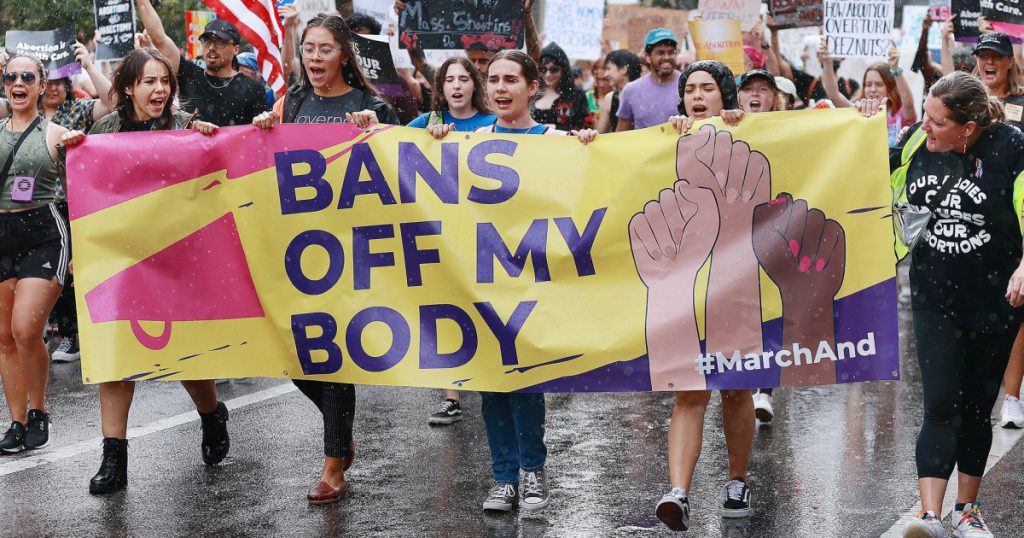Florida implemented a ban on abortions after six weeks of pregnancy, making it a felony to perform or participate in an abortion after that time period. The law has exceptions for cases of rape, incest, and human trafficking up to 15 weeks of pregnancy and for situations where an abortion is necessary to save a woman’s life or prevent irreversible physical harm. Abortion providers in the state worked to see as many patients as possible before the ban went into effect, though some patients were unaware of the restrictions and timelines. Florida also requires two in-person visits at least 24 hours apart before an abortion, a rule that some patients may not know about.
One woman, Cassie, shared her experience of going to an abortion clinic for a consultation just two days before the six-week ban took effect. She was unaware of the timing and could have easily missed the deadline if she had waited longer to seek care. Cassie, who lives in an RV with her partner and child, expressed that she is not in a position to have another child at this time due to financial constraints. She confronted a protester outside the clinic who urged her to continue her pregnancy, highlighting the challenges faced by women in Florida who may now have to carry unwanted pregnancies or travel long distances for abortions.
Anti-abortion-rights groups in Florida are celebrating the new law, touting it as a sanctuary for life and vulnerable individuals. The state has allocated $25 million to expand the Florida Pregnancy Care Network, which includes crisis pregnancy centers that discourage abortions and offer counseling and supplies. With neighboring states in the Southeast also imposing strict abortion bans, people seeking abortions in Florida may now need to travel to North Carolina or Virginia, where abortions are allowed up to 15 weeks. However, not all individuals have the resources or ability to travel long distances for care.
The Florida Access Network, a fund that assists individuals with the cost of abortions, is preparing for an increase in patients needing help with out-of-state abortions. A Woman’s Choice, a network of abortion clinics with locations in Florida, North Carolina, and Virginia, has opened additional clinics in anticipation of Florida’s ban. The organization plans to provide information and support to women in the South seeking abortions, helping them with logistics, travel, and other resources. The impact of Florida’s six-week abortion ban will likely force patients to travel long distances for care, creating additional challenges for individuals who may already be facing financial and logistical obstacles.
In conclusion, the implementation of a six-week abortion ban in Florida restricts access to abortion care, particularly for individuals in the Southeast seeking reproductive healthcare. Providers are concerned about the impact of the new law on women’s health and the potential risks posed by delayed care. Patients like Cassie are navigating complex circumstances and facing barriers to accessing timely abortion services. Organizations are preparing to assist individuals in need of abortion care through various resources and support systems, recognizing the challenges posed by restrictive laws in Florida and neighboring states. The evolving landscape of abortion access highlights the importance of advocacy, education, and support for individuals seeking reproductive healthcare in the face of growing restrictions and barriers.


